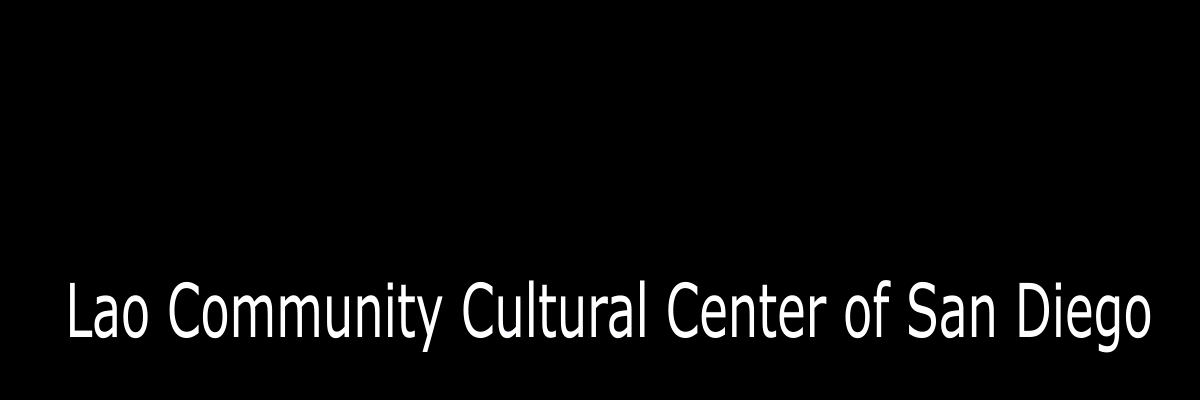

In San Diego and many scattering Lao communities in the United States, classical dance is one of the most powerful and graceful
aspects of Lao culture. Lao classical dance and many other cultural traditions are quickly disappearing as the older Lao generation, who largely retains this knowledge,
is passing on. The Lao Community Cultural Center (LCCC) of San Diego is taking proactive steps to preserve these beautiful art forms by ensuring that our youth continues
to be involved and take pride in their cultural identity, so they can understand their own heritage, inherit these beautiful performance arts and continue to showcase
the classical dance performances.
Lao classical dances and music stemmed from centuries-old dance traditions and cultural exchanges throughout Southeast Asia. In general, classic Lao dancers
are women while the musicians are typically men. The classical dance is characterized by its graceful movements with seemingly curved fingers with bare feet and
bent knees through the dance routine. The garments worn by the dancers include silk blouses and long skirts (Sihn) with silk scarf (Phabieng) draped
neatly across the upper body. The dancers often wear golden headpieces depicting the influence of Buddhist religion. The complement instruments for Lao
classical dance include the Khaen (bamboo mouth organ), Xing (hand cymbals), Khui (flute), Gongvong (circle drum), and the Laanath (wooden xylophone).
Some music and performances also include lyrics that tell stories based on folktales and epic mythologies or religious scripts, which are interpreted by the
dance performances.